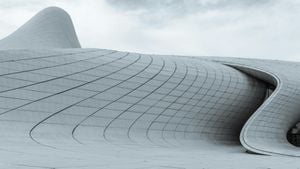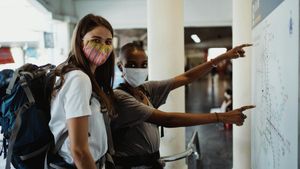In the high-stakes world of autonomous driving, Tesla's ambitions to lead the way have sparked a host of controversies and challenges. Central to these debates is the ongoing struggle Elon Musk faces in trying to bring reliability and safety to Tesla's so-called "Full Self-Driving" (FSD) technology. As regulators close in, technology experts and analysts are increasingly voicing their concerns about the limitations of this advanced system.
Recent reports highlight that a significant portion of Tesla's efforts in optimizing FSD may be narrowly focused on the driving patterns of Musk himself. According to sources, the data collected on human behaviour for training Tesla’s autonomous systems favors the CEO’s personal driving experiences, often referred to as “VIP” data. Employees have noted that human annotators at Tesla, tasked with labeling footage from the company’s vehicles, specifically prioritize the driving habits of Musk alongside other high-profile drivers.
This emphasis is seen by many as a reflection of Musk's penchant for micromanagement and self-preservation, suggesting that the company’s resources might be partly directed towards enhancing the experience of its CEO rather than a broader, more comprehensive understanding of road conditions generally.
A Business Insider report emphasized that this focus could lead to skewed results in Tesla's data collection processes. One former employee shared, "It seems pretty clear that Elon's experience would be better than anyone else's," highlighting how Musk perceives the software’s performance as superior, based primarily on his own driving experiences. Worker accounts suggest that extra attention was given to annotating data from Musk's car, possibly distorting the company’s training datasets.
Meanwhile, this privileged treatment raises questions about the objectivity and reliability of the self-driving technology being rolled out to regular consumers. According to Truist Securities analyst William Stein, who recently tested FSD, significant issues remain with the technology, particularly in real-world scenarios. Stein noted in a client report that his intervention was "absolutely required to avoid an otherwise certain accident" while using the feature, reinforcing the belief that FSD still requires substantial improvement before it can be considered safe.
Stein's experience was not isolated. Accounts of near accidents and actual collisions involving Tesla vehicles using FSD have surged, prompting scrutiny from regulatory bodies like the National Highway Traffic Safety Administration (NHTSA). The NHTSA has been investigating possible malfunctions associated with the software, particularly its tendency to brake without warning or fail to respond to commands, leading to serious safety concerns.
The investigation has amplified after a notable incident where the driver of a Tesla Model S reported that their vehicle was in full self-driving mode during an accident that involved eight vehicles on the San Francisco Bay Bridge. California police noted the car abruptly shifted lanes and slowed down unexpectedly, causing a chain reaction of crashes. This event further illuminates the risks posed by current autonomous technologies.
Adding to the complexity, the real-world implications of using FSD have continued to unfold, with many drivers likely lulled into a false sense of security. Even though Tesla prominently advises drivers they must remain vigilant and ready to take control at any moment, many users may oversimplify the extent of autonomy provided by the system. This mismatch between the anticipated functionality and actual performance raises significant safety issues that can’t be overlooked, particularly as regulators ramp up their examination of the technology.
Moreover, Musk’s aggressive marketing of FSD as a near-autonomous system stands in stark contrast to its actual capabilities. At its core, the FSD package has been criticized for misleading consumers who may believe they can rely entirely on the software to navigate roadways safely.
Despite the well-documented challenges, Musk remains committed to showcasing the potential of autonomous driving technologies, recently teasing the launch of a "robotaxi". However, the event has reportedly faced delays, and concerns linger regarding whether Tesla has proceeded with the necessary regulatory approvals to even test a fully autonomous taxi service in North America.
As this saga evolves, the intertwining narratives of Musk's ambitious vision, investor confidence, and the increasing pressure from regulatory agencies will continue to shape the future of Tesla's autonomous driving initiatives. The outcome will likely determine not just the fate of Musk's aspirations but also the broader trajectory of self-driving technology and its acceptance in society.



